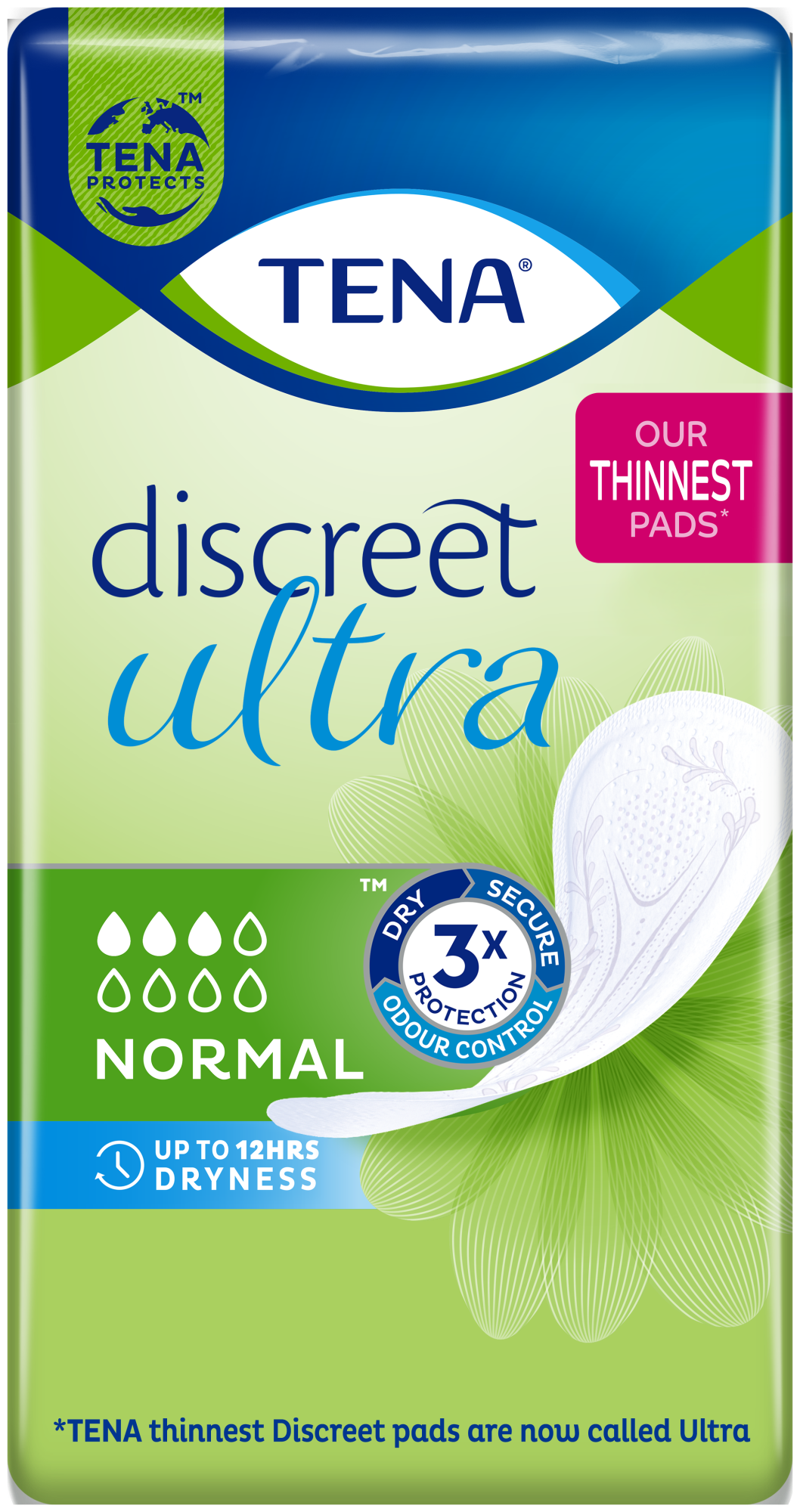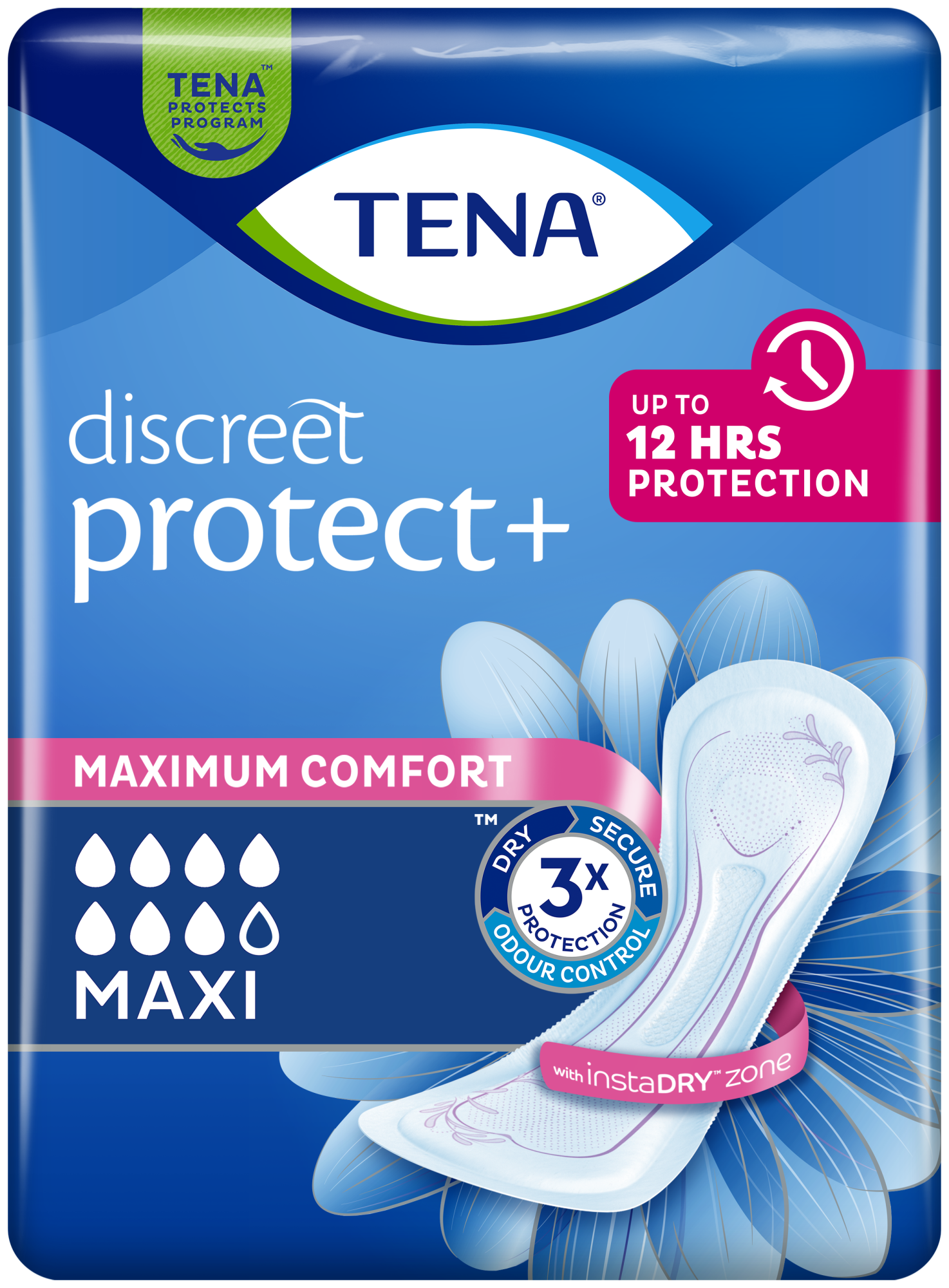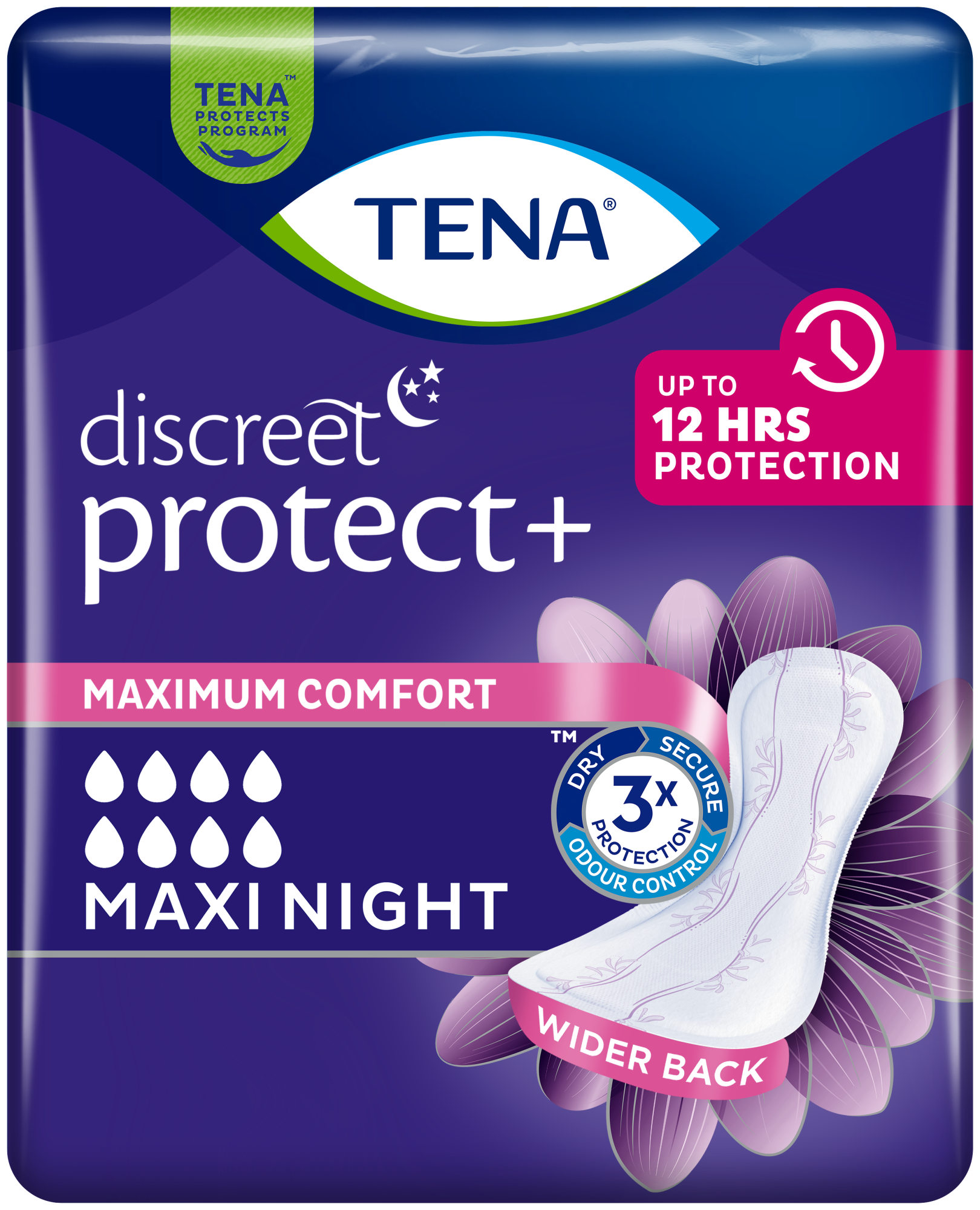If you’ve noticed that you’re suddenly running to the bathroom every five minutes and experiencing leaks every time you unexpectedly cough, you’ll know that pregnancy can take a toll on your bladder. This all very normal, and usually nothing to worry about.
In this article you will learn:
- That some hormones can weaken your pelvic muscles and affect the urine control,
- Which TENA pads are best for little leaks or heavy post-partum fluids and how to order a free sample.
- That 1 in 3 women after 35* can experience and how to deal with it during pregnancy and after childbirth
What happens to your bladder during pregnancy
Throughout pregnancy, your blood volume increases progressively causing the kidneys to produce more urine, so you need to go to the bathroom more often.
You’ll also find you’re producing more urine because you’re probably drinking more, which is a good thing – the advice when you’re experiencing morning sickness is to stay hydrated to compensate for the lack of food, which also leads to more frequent trips to the bathroom.
When you’re pregnant, hormones such as progesterone and relaxin help to loosen and relax your muscles, joints and ligaments to allow your body to stretch and prepare for delivering a baby. This also weakens the muscles that control urine flow, so leaks can become more common.
As your uterus expands with your growing baby, there’s extra pressure on your bladder and it can’t expand to the same levels of fullness. The bigger your baby gets, the more your bladder gets squeezed, which is why you might feel you live in the bathroom during your third trimester.
What’s more, when you lie down at night, fluid that has built up in your legs and feet finds its way back into your bloodstream. This increases the production of urine, which is why you might be waking up more frequently at night to pee.
How pregnancy can cause incontinence
The softening of your , an increase in urine production over time, fluid retention and the extra pressure on your pelvic floor and bladder can weaken the support around your urinary tract during pregnancy. This all means that you can experience light leaks – especially when you laugh, cough or sneeze.
If you’re experiencing light leaks during pregnancy, TENA Discreet Ultra Mini Incontinence Liner provides triple the protection from leaks, odour and moisture thanks to its unique microPROTEX™ technology. It’s super absorbent and no larger than a menstrual pad.
Giving birth also takes a toll on the pelvic floor muscles, and so it’s very common to continue to experience leaks (or incontinence) after childbirth. This can last a few weeks, or you might find that you experience the odd accident now and again over a longer period.
If you’re experiencing heavy post-partum leaks, TENA Discreet Protect+ has high-absorbency levels that lock in odour and moisture, and allow you to stay dry for up to 12 hours.
Your body just needs some time to heal and readjust – things should settle down again and there are things you can do to prevent, reduce and manage your symptoms. However, if you’re concerned that you may have a more serious problem, it’s always a good idea to talk to your doctor.
*International Consultation on (ICI), publication 2013, Abrams et
How to deal with incontinence during pregnancy and after childbirth
It’s common for women to experience (or incontinence) during pregnancy and – in fact, research shows one in three women over 35 will experience and mums experience more symptoms than at any other life stage**.
TENA is here to help you navigate your pregnancy and post-partum journey, with practical advice for pregnancy and post-partum incontinence.
We have a huge range of products designed to support you – check out the full range here and you can also order samples. Don’t hesitate to contact us if you can’t find the right product for you.
**Global resaearch (FR, UK, MX, CO) Kitchen8, January 2021








